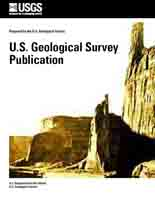Quaternary geologic map of the Wichita 4 degrees x 6 degrees quadrangle, United States
Links
- More Information:
- Download citation as: RIS | Dublin Core
Abstract
Suggested Citation
Luza, V., Jensen, K.M., Fishman, W.D., Wermund, E.G., Richmond, G., Christiansen, A.C., and Bush, C.A., 1993, Quaternary geologic map of the Wichita 4 degrees x 6 degrees quadrangle, United States: U.S. Geological Survey IMAP 1420(NJ-14), 1 map :col. ;52.80 x 41.18 inches, on sheet 104 x 133 cm., folded in envelope 30 x 24 cm.; Text: 18 p.; Downloads Directory, https://doi.org/10.3133/i1420(NJ14).
Study Area
| Publication type | Report |
|---|---|
| Publication Subtype | USGS Numbered Series |
| Title | Quaternary geologic map of the Wichita 4 degrees x 6 degrees quadrangle, United States |
| Series title | IMAP |
| Series number | 1420(NJ-14) |
| Subseries | GAUS |
| DOI | 10.3133/i1420(NJ14) |
| Year Published | 1993 |
| Language | ENGLISH |
| Description | 1 map :col. ;52.80 x 41.18 inches, on sheet 104 x 133 cm., folded in envelope 30 x 24 cm.; Text: 18 p.; Downloads Directory |
| Scale | 1000000 |


